Growing perpetual spinach is a good alternative to growing true spinach. It is easy to grow, and will keep producing leaves all year.
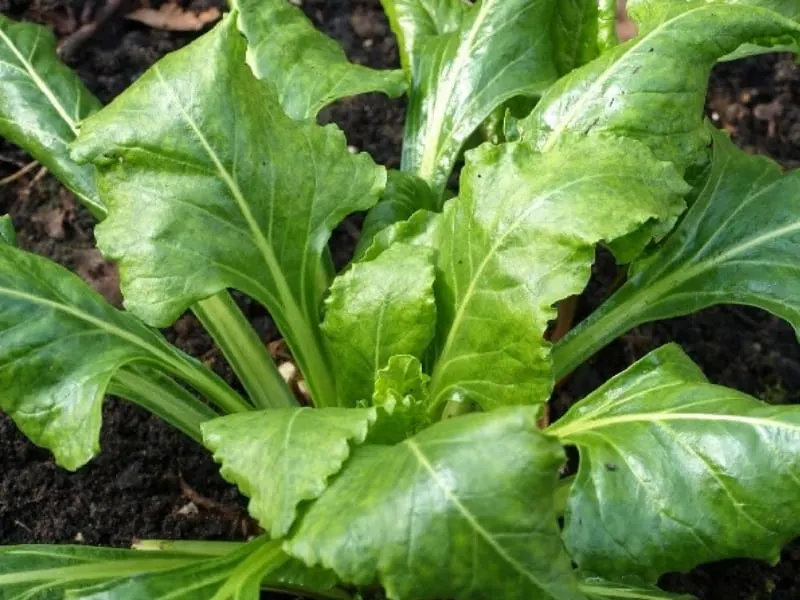
What’s in a name? In the case of perpetual spinach, the species available tend to have been christened over and over. It could be:
Swiss Chard, Perpetual Spinach Heirloom, Organic 100 seeds, Non Gmo
- ruby chard
- sea kale
- silver chard
- swiss chard
- spinach beet
- perpetual spinach
The beet leaf family are all easy to cultivate and are very prolific vegetable plants.
I’ll be using most of the above names in this article, since they all mean the same 😉
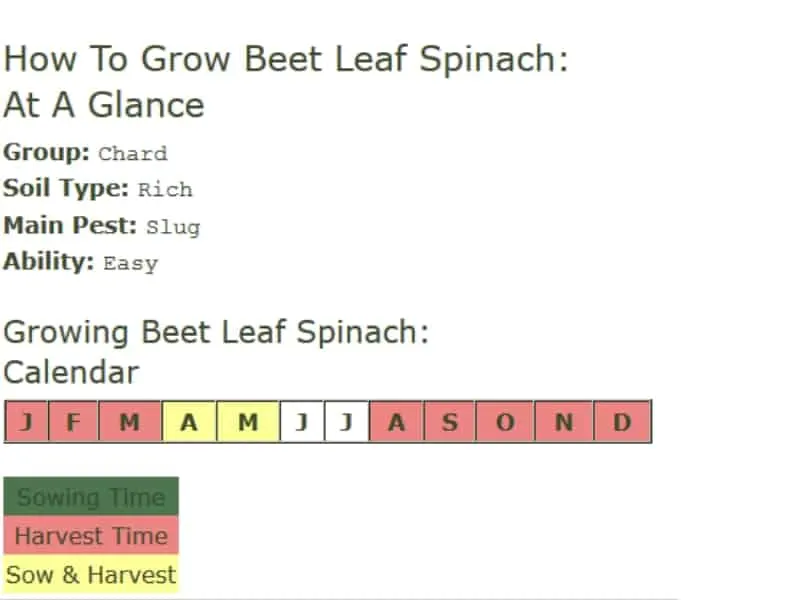
Growing Perpetual Spinach Tips
The best soil for perpetual spinach/beet leaves
Beets are not too fussy about the soil. A dig over and a good dose of manure in the fall should keep them producing leaves all through their season.
Although the beets are not in any way related to the brassicas, they do well when grown them together.
This is because of the amount of nitrogen they need to produce plenty of green leaves. And as we plant brassicas in the nitrogen rich soil left by the legumes the previous year, the nutrition balance should be perfect.
To give them a boost of nitrates later in the year, you could mulch with nettles or feed with a homemade nettle tea.
How to plant perpetual spinach
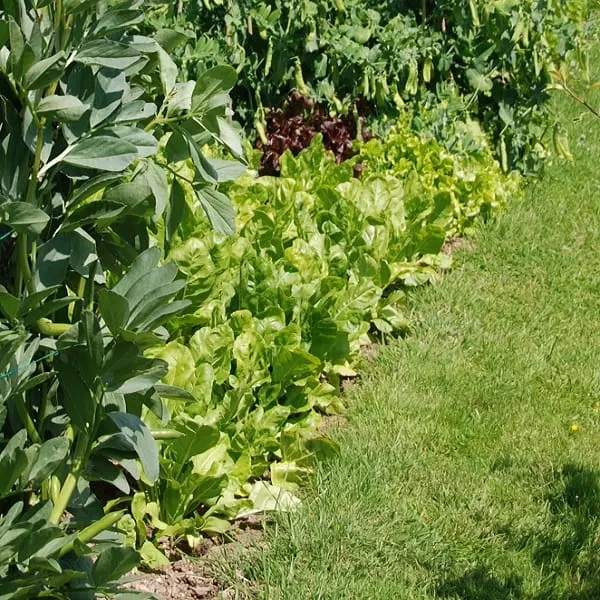
Sow directly in April in drills 2 to 3cm deep. I like to sow 3 or 4 parallel rows, each row being 6 feet long and spaced around 2 feet apart. Sounds like a lot, and it might be for others. But we love it!. As they start growing, thin the plants to have 1 plant every foot.
You will need to keep weed free and watered in dry weather, but other than that, beet leaf spinach is extremely easy to cultivate.
Swiss chard pests and disease
This vegetable garden plant is trouble free and is not susceptible to any diseases. In fact, the only pest that you need worry about is the dreaded slug.
I say dreaded slug because the slug is such an irritation to any vegetable gardener.
We use a number of methods to control slugs. The beer trap being the most effective, but backed up by coffee grounds and broken egg shells.
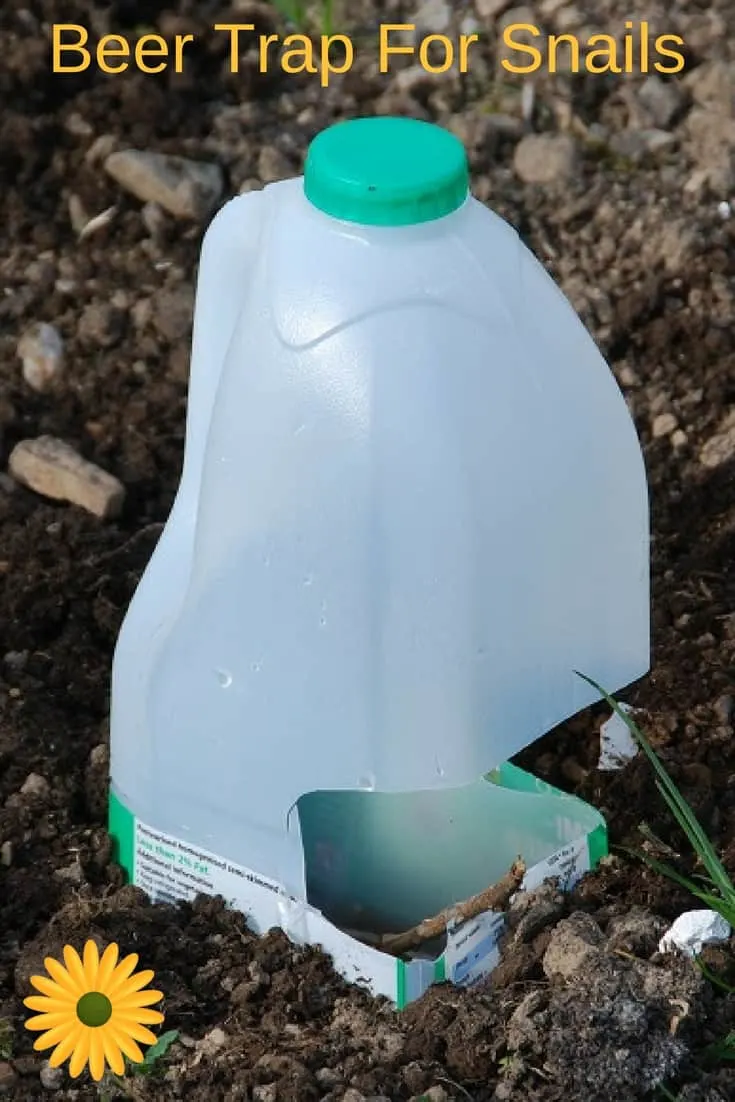
How to harvest perpetual spinach
Beets are very easy to harvest, as soon as the plant is big enough, usually in August. Simply cut off leaves as needed, but don’t completely strip the plant.
Although the plant will slow down in the winter, with a good feed, and as soon as the temperatures improve, you could be cutting beet leaves all the way through until June.
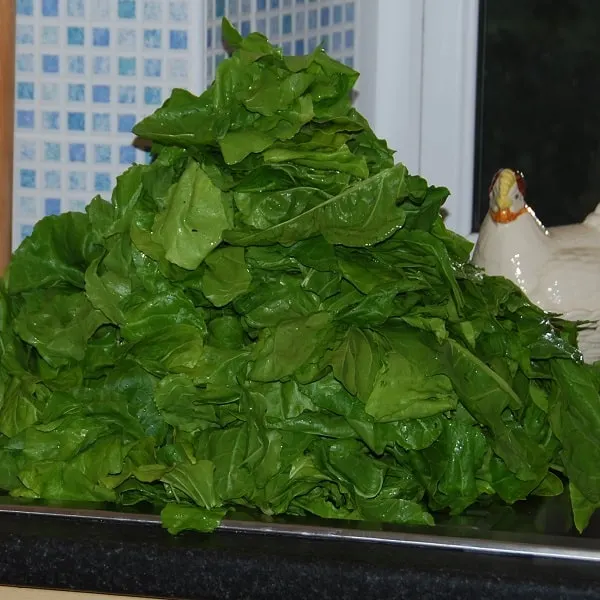
How to cook beet leaf spinach
Young chard leaves are beautiful in salads, and make a very nutritious and tasty side dish when wilted in butter with a twist of black pepper.
Beet spinach is not as bitter as true spinach, but can be used in very much the same way. Usually we would leave the leaves mature a bit longer, and de-stalk them before cooking.
Simply steamed with a touch of nutmeg is ideal.
Why not try Eggs Florentine, poached eggs covered with a rich cheese sauce served on a bed of spinach? It’s delicious. Or chop up cooked spinach, mix with beaten eggs and pan-fry just like an omelette.
Of course, spinach works well in pasta dishes, cannelloni, curry and quiche.
If you have a glut you can also freeze spinach. Just blanch for a minute, chill in ice cold water, shape into briquettes and squeeze as much water out as you can physically manage. Then freeze on trays and bag up when frozen.
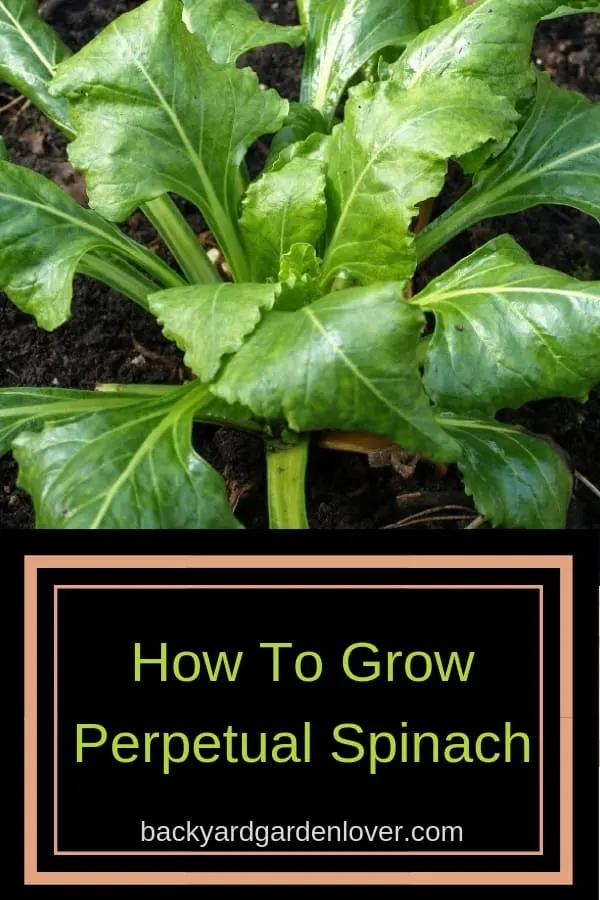
Adriana Copaceanu is a passionate nature lover living in the country on her dream property where she grows vegetables, lavender, and wildflowers that she shares with the wildlife they attract. When she's not in the garden, she loves spending time with her chickens and planning her next nature project. Check out her books below:
How to Grow Lavender for Fun and Profit: Lessons Learned from Planting Three Hundred Lavender Plants


What To Do In The Garden This Month
Friday 23rd of April 2021
[…] perpetual spinach […]
Backyard Vegetable Garden Ideas
Monday 8th of February 2021
[…] Growing Perpetual Spinach For Year-Round Greens […]
January Gardening Tips
Tuesday 1st of December 2020
[…] perpetual spinach […]
Dianne
Tuesday 11th of February 2020
Awesome thanks for the tips and recipes!
7 Free Vegetable Garden Plans To Get You Started
Friday 30th of November 2018
[…] Related: how to grow perpetual spinach. […]